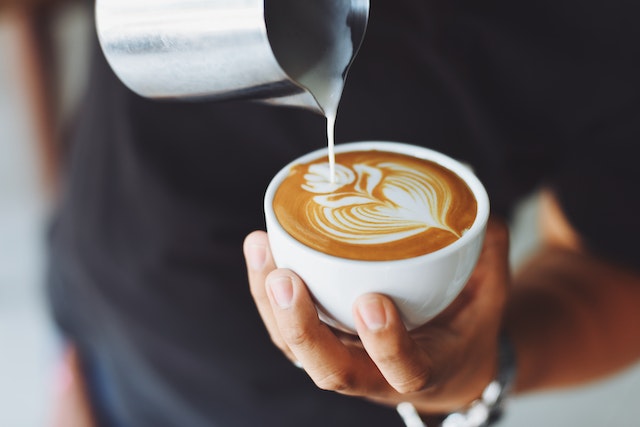
How does caffeine stop you from feeling sleepy? Caffeine stops you from feeling sleepy by blocking the action of adenosine on its receptors.
So, why do we get sleepy? A lot of research has been done into why we need to sleep, but nobody has come up with an answer. We obviously do because if we don’t sleep, we get confused, and prolonged sleep deprivation can lead to high blood pressure, heart disease, obesity, depression, reduced immune system function, and a whole raft of other things. Sleep is a necessity. Our bodies obviously know this, and they have systems to make us sleep.
There are some things that scientists do know. One of them is that when it starts to get dark, our brains release melatonin. The pineal gland in the brain releases the hormone called melatonin, which travels around the body and appears to prepare us for sleep. It synchronizes all of the body’s functions ready for the sleep phase. Melatonin reduces in old age, which is why old people have trouble sleeping, and it is delayed in teenagers, which is why they need to sleep so late. However, how melatonin works appears to be unknown.
Another thing that studies have uncovered is that we need to clean our brains daily, which is one reason why we need to sleep. A chemical called adenosine builds up in our brains. Adenosine is produced by the body when it converts glucose into energy through a process called glycolysis. Our bodies store energy as glucose. When we need to use that energy, the glucose is carried to the cells and the cells convert the glucose into a form they can use. They do this by breaking it down into pyruvate (a keto acid), water, and adenosine triphosphate (ATP). The process releases 38 molecules of ATP. This ATP is then broken down further and converted into adenosine.
All of the cells in your body do this. Out of all of the organs in the body, the brain uses the most calories. Every time a neuron fires and a signal crosses a synapse, energy is required. So, it stands to reason that the brain converts a lot of ATP into adenosine. The more energy your brain uses, the more adenosine builds up. All the neurons in your brain have adenosine receptors and the adenosine attaches to these receptors. When it attaches, it triggers the receptor and interrupts the energy transfer across the synapses, slowing your brain down, and making you feel sleepy. When the adenosine builds up to unmanageable levels your brain needs to sleep. This is one reason why people have trouble thinking when they don’t sleep. During sleep, the adenosine is metabolized by your body and cleared from the brain, allowing the cycle to repeat the next day.
So, how does caffeine stop you from feeling sleepy? Caffeine is an adenosine blocker. It has a chemical structure that is very similar to adenosine, and it can attach to the adenosine receptors that are meant for the adenosine. When a caffeine molecule attaches to an adenosine receptor, it blocks the adenosine, preventing it from slowing down the brain and stopping you from feeling drowsy. The process cannot be stopped indefinitely, but caffeine can keep you awake and aware in the short term.
There are two problems with using caffeine to block adenosine. The first is that the buildup of adenosine makes you sleepy and without it triggering the receptors in your brain, your sleep cycle could be thrown off. The second is that if the adenosine doesn’t trigger the receptors, is not properly metabolized. Adenosine can build up in the brain and when the caffeine is metabolized, the adenosine will rush the receptors. This explains the groggy feeling heavy caffeine drinkers get in the morning. The brain hasn’t been effectively cleaned of the adenosine. Unfortunately, this causes people to drink more coffee, and the cycle repeats.
Caffeine occurs naturally in several plants and is produced by them to protect against insects. Caffeine can be fatal if consumed in a large quantity and a small amount can kill an insect. A fatal dose for a human would be about 10 grams, which would be about 100 cups of coffee. I have trouble drinking more than ten cups.
One concern is that modern energy drinks contain as much caffeine as coffee of tea but they have far more sugar. (Assuming, like me, you don’t put sugar in your coffee.) The daily recommended dose of caffeine is about 400 mg, which is about four cups of brewed coffee. A can of Monster has 160 mg of caffeine, but because it is sweet it has 28 grams of sugar, which is a lot. And this is what I learned today.
Sources
https://www.livescience.com/5269-study-sleepy.html
https://www.cspinet.org/caffeine-chart
https://www.ncbi.nlm.nih.gov/books/NBK223808/
https://en.wikipedia.org/wiki/Melatonin
https://byjus.com/question-answer/how-is-glucose-converted-to-atp/
